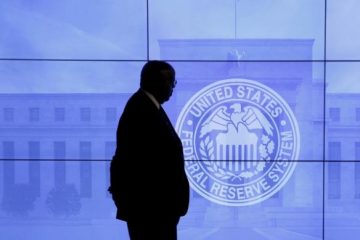The currency-trading scandal continues to dog the banks

THE LAUGHING stopped long ago. Between 2007 and 2013, in online chatrooms called “Three Way Banana Split”, “Essex Express ’n the Jimmy” and other rib-ticklers, currency traders yapped about all sorts of things—including market tactics. The banter has cost their employers dear. Banks have been fined over $ 10bn for market-rigging by American and European regulators, including €1.1bn ($ 1.2bn) by the European Commission in May. An American class action cost 15 banks $ 2.3bn. But a lawyer’s work is never done. On July 29th Scott+Scott, an American law firm, filed a collective-action case at the Competition Appeal Tribunal (CAT), an antitrust forum in London.
Cases like this are still a novelty in Britain, despite a theoretically helpful change in competition law in 2015. Collective claims may now be brought to the CAT on an “opt-out” basis, in which members of a specified class are included in the claim unless they choose not to be. If a monopolist rips off its customers, it may do lot of harm in total, but the damage to each may be small. Given the cost of going to court, many may not bother suing. But the easier a collective-action case is to bring, the likelier they are to gain redress.
The expense of bringing a case to the CAT—and the risk of defeat—are borne by a newish breed of firms specialising in financing litigation. If an action succeeds, claimants (if they are traced) get their awards in full. The financiers are paid out of undistributed damages.Therium Capital Management, established in 2009, is backing the foreign-exchange case. British-domiciled companies, pension funds and other investors are included automatically, unless they opt out (foreign claimants must opt in). Cases are led by a representative who may or may not belong to the class. The forex suit is fronted by Michael O’Higgins, a former head of Britain’s Pensions Regulator. Mr O’Higgins estimates the damages to be at least £1bn ($ 1.2bn).
Few collective cases have yet reached the CAT. One, against a maker of mobility scooters, was withdrawn in 2017. Two involve claims by hauliers against lorry manufacturers. In another, a consumer champion argues that railways are, in effect, charging commuters into London twice for the part of their journey that overlaps with Transport for London’s network.
By far the biggest case is heading to Britain’s highest court. The representative, Walter Merricks, an ex-head of the Financial Ombudsman Service, a dispute-settlement body, claims that between 1992 and 2008 some “interchange” fees set by Mastercard, though paid by merchants accepting its cards, harmed consumers because they were passed on in higher prices. (The European Commission banned the fees in December 2007.) Mr Merricks puts the damage at a whopping £14bn. In July 2017 the CAT ruled the claim ineligible, saying that the damage to consumers, in aggregate or individually, could not be accurately assessed. In April the Court of Appeal declared that the CAT had been too hasty. On July 24th the Supreme Court said it would hear an appeal by Mastercard against the Court of Appeal’s judgment.
The busy Supreme Court will not hear the case before February and possibly not for a year. Because it concerns the criteria for the CAT even to consider damages, its verdict will be eagerly awaited by lawyers, litigation financiers and consumer watchdogs. Whatever the outcome of the foreign-exchange case, banks will face more bills. Several big investors are suing on both sides of the Atlantic, reckoning they will win more in conventional damages claims than from American class actions or their British imitators.■


